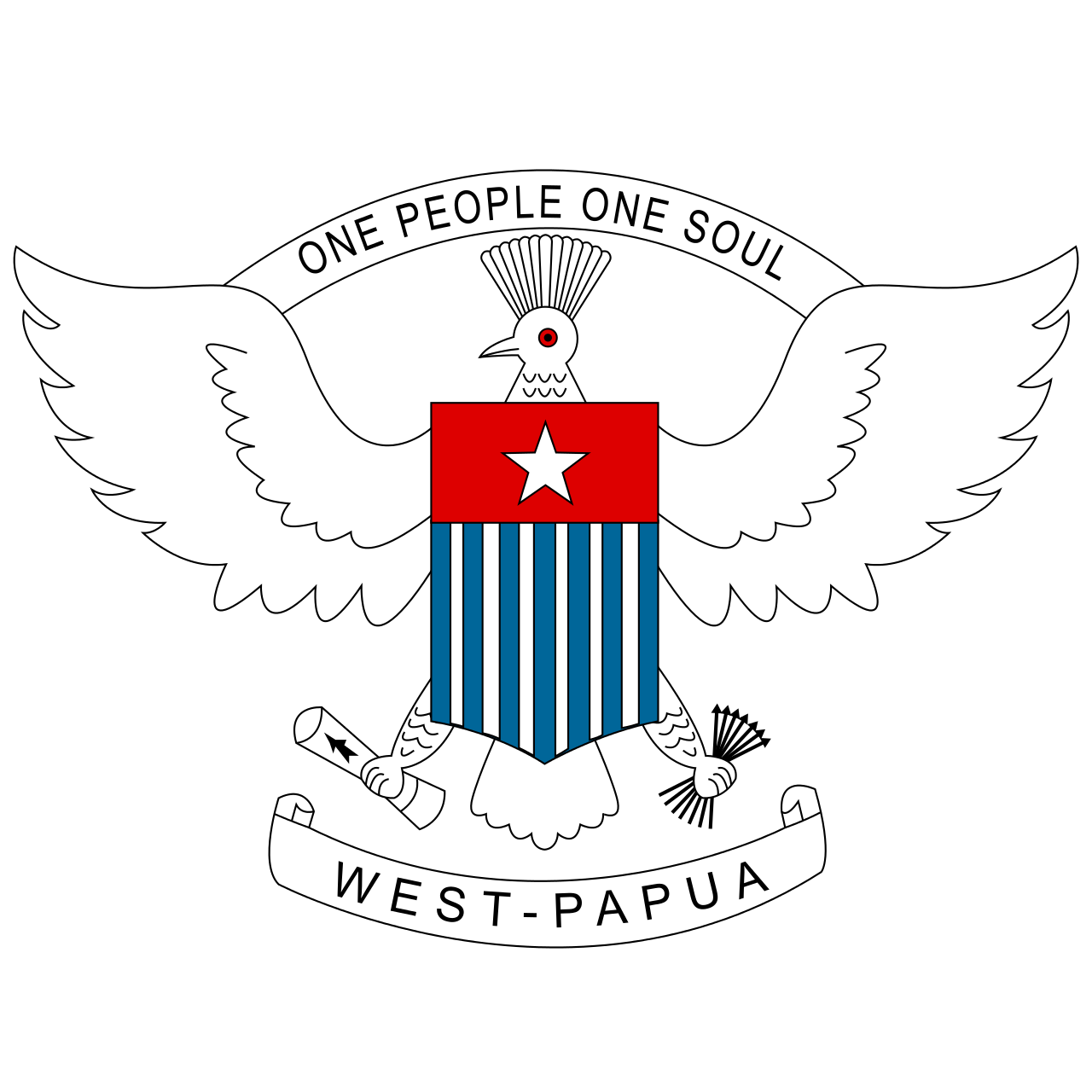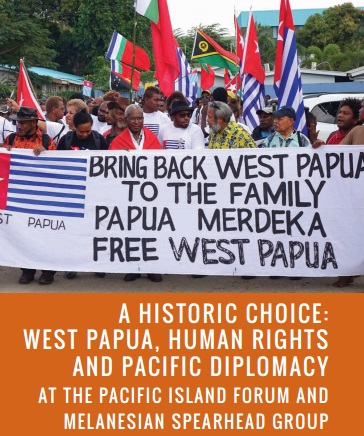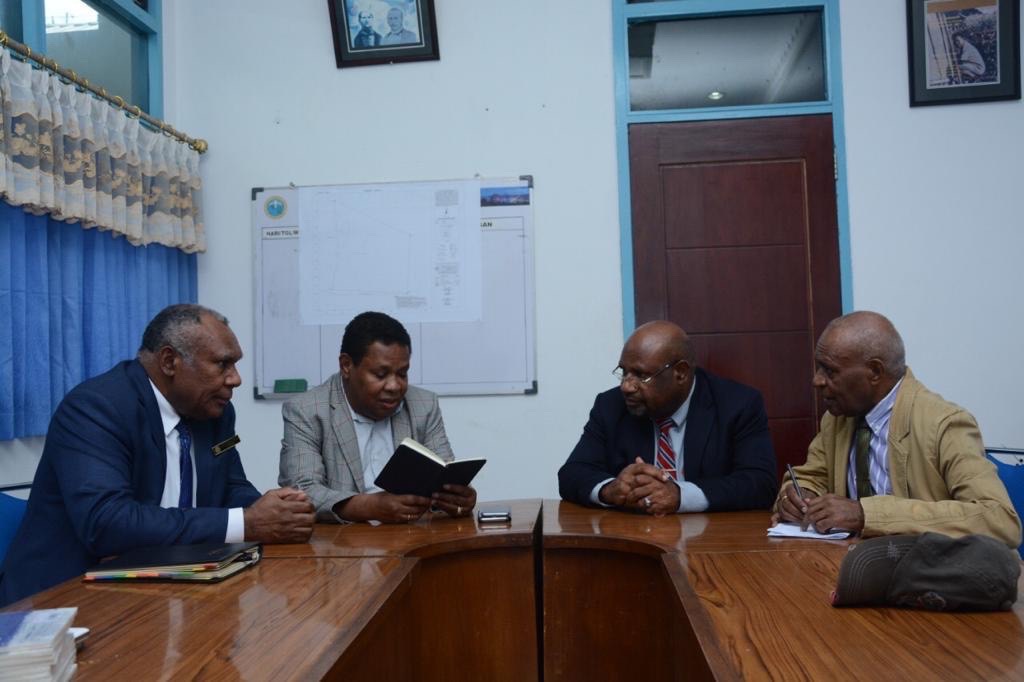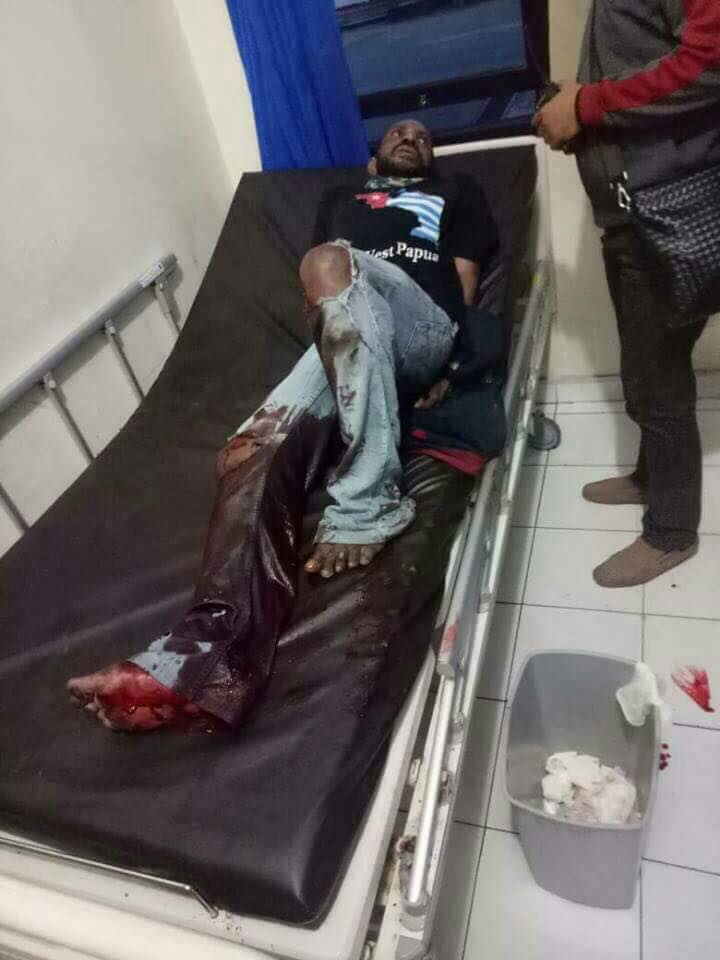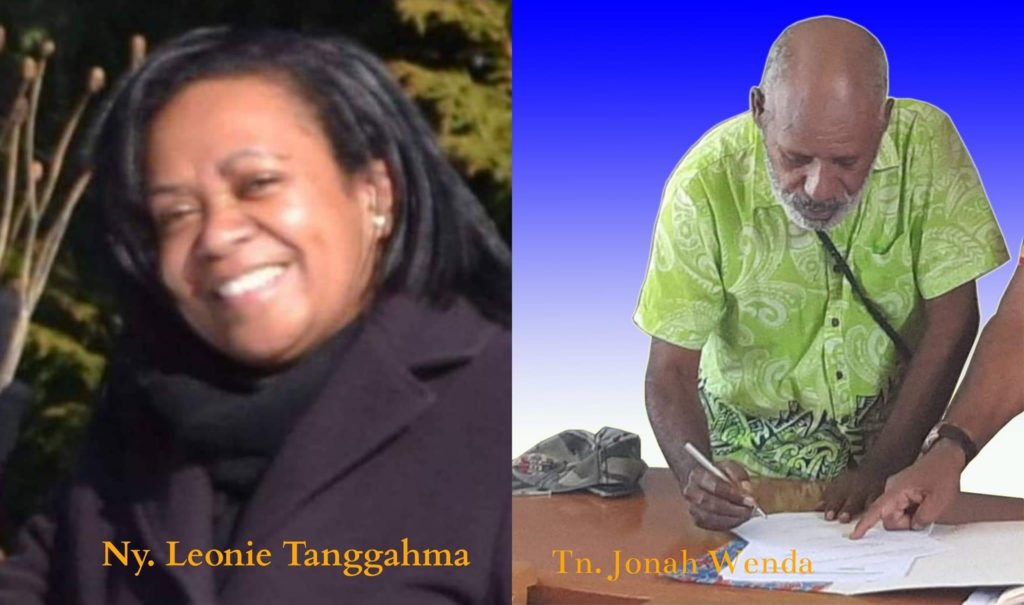The human rights crisis in West Papua has been brought to the attention of the world at the recent United Nations General Assembly. No less than seven Pacific Island nations raised the issue in speeches in front of their international audience. Most of them have not spoken about their concerns publicly before.
Solomon Islands, Nauru, the Marshall Islands, Tuvalu and Tonga joined long-time West Papua supporter Vanuatu in expressing concern over Indonesia’s actions in the Papuan provinces it has held since the 1960s.
This incredible show of Pacific Island solidarity is a landmark moment in the West Papuan struggle for self-determination, which until now has remained largely forgotten by much of the world.
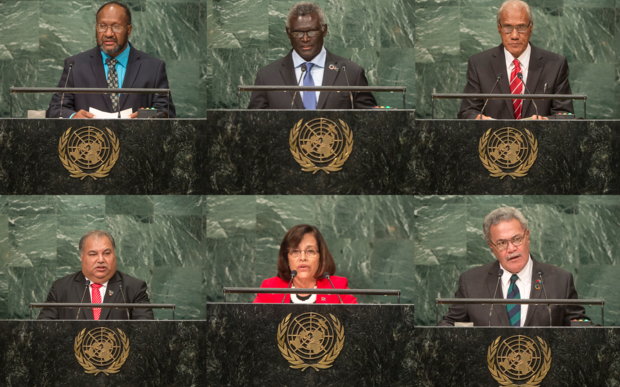
Pacific leaders at the UN General Assembly the issue of West Papua. Top L to R: Vanuatu Prime Minister Charlot Salwai; Solomon Islands Prime Minister Manasseh Sogavare; Tonga Prime Minister ‘Akilisi Pohiva. Bottom L to R: Nauru President Baron Waqa; Marshall Islands President Hilda Heine; Tuvalu Prime Minister Enele Sopoaga Photo: UN Photo
Here is a breakdown of which countries stood up for West Papua at the UN General Assembly, and what they said.
Speaking first, Hon. Baron Divavesi Waqa, the President of Nauru said,
Nauru is deeply concerned regarding the situation in West Papua including the alleged human rights abuses. As emphasized in the Pacific Islands Forum Communique, it is important that there be an open and constructive dialogue with Indonesia on this matter.
The President of the Republic of the Marshall Islands, Hilda Heine, was the next leader to address the General Assembly about West Papua, saying,,
Given the importance of human rights to my country I request that the UN Human Rights Council initiate a credible and independent investigation of alleged human rights violations in West Papua.
Prime Minister Enele Sosene Sopoaga of Tuvalu then spoke, arguing that,
The principle of self-determination must also be respected and honoured. The violation of human rights in West Papua and their desire to achieve self-determination is a reality. This great body cannot and must not ignore these deplorable situations, it must not hide behind the guise of the principles of non-interference and sovereignty. The UN must act on this issue and find a workable solution to give autonomy to the Indigenous Peoples of West Papua.
Next was Vanuatu, with Prime Minister Hon. Charlot Salwai Tabimasmas saying,
The people of West Papua have turned towards the United Nations and they are looking for a light of hope … for freedom and exercising their own rights upon their own land to freely affirm their identity. I urge the United Nations to make this one of its initiatives of human rights above all.
The Prime Minister of Solomon Islands, Hon. Manasseh Sogavare spoke once again at the UN General Assembly about human rights violations in West Papua and the pursuit for self-determination for West Papua, which he argues are two sides of the same coin. “Now if the jurisdiction of sovereignty rests on a series of decisions that are questionable then there is a case of legality of the argument of sovereignty as is the case of the New York Agreement and the Act of Free Choice.”
Prime Minister of Tonga, Hon. Samiuela ‘Akilisi Pohiva “We express for the welfare of the Pacific peoples that are residents and citizens of West Papua… Last year on this same podium I stood here and spoke about human rights abuses taking place in Indonesian ruled West Papua. In the year that has passed nothing appears to have changed in that place. ”
Notably absent were voices from fellow Melanesian nations Fiji and Papua New Guinea.
Jakarta’s response to the speeches came from an official at Indonesia’s permanent mission to the UN. Nara Masista Rakhmatia said her government categorically rejected accusations of rights abuses in Papua, accusing the governments concerned of interfering in Indonesia’s sovereignty. She singled out Vanuatu and Solomon Islands, suggesting other countries with human rights problems shouldn’t point the finger at Indonesia.
“These countries are using the General Assembly to advance their domestic agenda, and for some countries to divert attention from political and social problems at home. The said countries are also using false and fabricated information as the basis of their statement. The conduct of these countries undermines the UN charter and are detrimental to the credibility of this assembly.”
However, it is understood to be the first time so many governments have raised concern about West Papua at a General Assembly debate.
